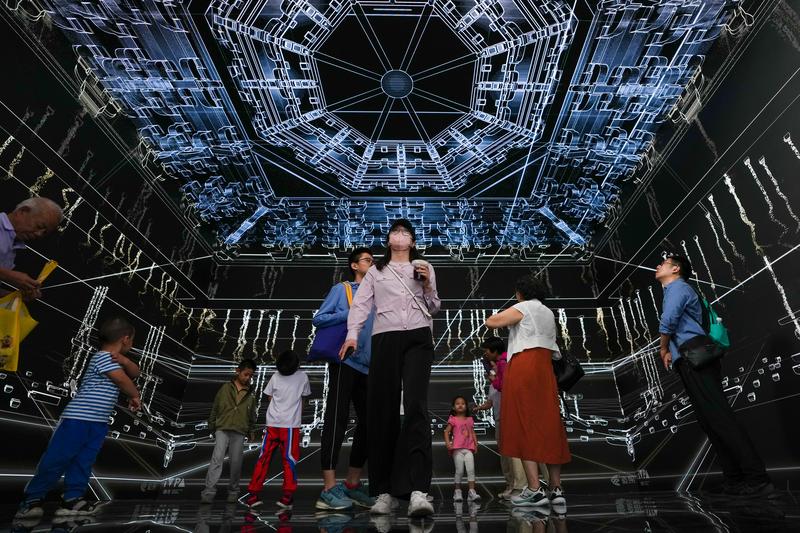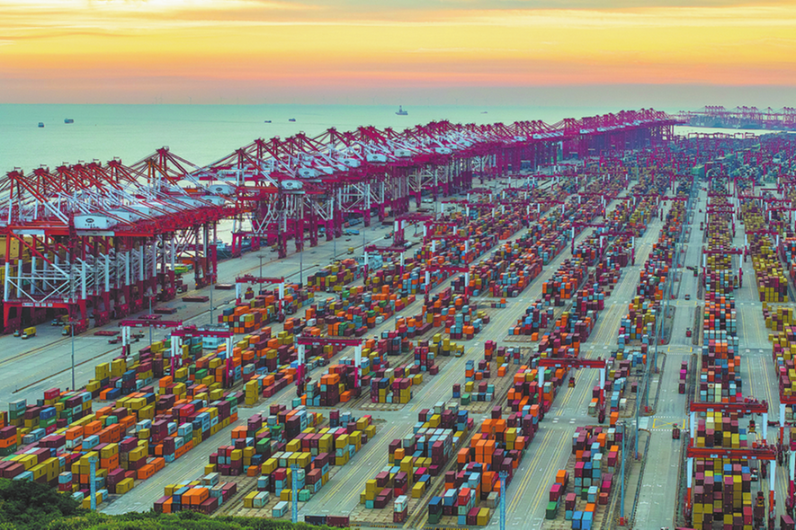How emerging tech reshapes cultural tourism


What could an obsolete industrial furnace be repurposed for? Though many possibilities exist, transforming it into a sci-fi wonderland probably ranks among the most imaginative options.
This vision has become reality at Shougang Park, a former industrial site located in Beijing's western outskirts. One of the park's blast furnaces has been turned into an extended reality sci-fi attraction, drawing visitors to an area once dominated by heavy industry.
"By integrating the original industrial infrastructure and breakthrough technologies, we've successfully repositioned the legacy industrial site as a premier tourist destination," Lyu Xiaozhuo, general manager of Shougang No 1 Blast Furnace SoReal Sci-Fi Park, said.
Riding the momentum of cutting-edge technologies, landmark destinations like the park are experiencing a dramatic renaissance, catalyzing a surge in China's cultural tourism consumption and injecting powerful impetus into the high-quality development of the world's second-largest economy.
Put on a headset and you find yourself faced with a myriad of dream journeys: interstellar cruises, horseback riding and even a trip to the west like the legendary one embarked upon by Monkey King Sun Wukong.
Powering such immersive experiences are cutting-edge technologies including edge computing, artificial intelligence and holographic imaging — all part of the innovative growth drivers that China's policymakers call "new quality productive forces".
With the large-scale application of emerging technologies, the sci-fi park has emerged as a breakout success story since its launch last year, according to Lyu.
"We're seeing tremendous traction in the study tour and family travel segments," Lyu noted, while also highlighting that the park has garnered notable foreign interest — with international visitors accounting for up to 10 percent of total summer traffic this year.
Commenting on the transformative impacts of technologies on China's cultural landscape, renowned Chinese sci-fi writer Liu Cixin said these innovations are "not only enriching the consumer experience, but also pioneering an entirely new era for cultural tourism".
Such tech-culture integration has breathed fresh life into the cultural sector. According to the China Tourism Academy, generative AI and vertical large language models are fueling digital innovation across the cultural sphere — offering visitors improved interactive experiences, diversified immersive options and more personalized services.
Lyu has attributed the success of the sci-fi park and the burgeoning cultural consumption market to a nurturing policy ecosystem, robust consumer market and the power of technological advances.
"We've been a big beneficiary of government policies," Lyu said. Notably, she added that government support has been granted in multiple forms and sustained in every stage of the park's development.
In a key policy document outlining cultural development for 2021-25, China designated cutting-edge technologies as a strategic cornerstone for reshaping its cultural development paradigm.
At the local level, authorities have been expediting such integration through targeted policies and via the establishment of cultural parks and innovation hubs. Beijing, for instance, has fostered a vibrant ecosystem of over 130 sci-fi creation and tech innovation enterprises at its Zhongguancun sci-fi innovation hub, which now delivers a broad spectrum of next-generation technological services.
China Daily - Xinhua




































